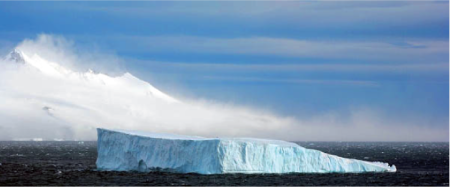| SEARCH |
-

Nov 17, 2015
Reflections on a three-decade legacy
The International Geosphere-Biosphere Programme (IGBP) will come to a close at t...
-
Nov 17, 2015
Use of and access to content on this website
Text and images produced by IGBP in house are free to use with appropriate credi...
-
Nov 12, 2015
Bella Gaia performance and panel discussion to mark IGBP's closure
A musical performance by Bella Gaia will celebrate the achievements and legacy o...
-

Towards Future Earth:
evolution or revolution?
During its three decades of existence, the International Geosphere-Biosphere Pro...
-
A personal note on IGBP and the social sciences
Humans are an integral component of the Earth system as conceptualised by IGBP. João Morais recalls key milestones in IGBP’s engagement with the social sciences and offers some words of advice for Future Earth.
-
IGBP and Earth observation:
a co-evolution
The iconic images of Earth beamed back by the earliest spacecraft helped to galvanise interest in our planet’s environment. The subsequent evolution and development of satellites for Earth observation has been intricately linked with that of IGBP and other global-change research programmes, write Jack Kaye and Cat Downy .
-
Deltas at risk
Around 500 million people worldwide live on deltas, but many of the world's deltas are sinking due ...
-
Climate change: the state of the science
A new data visualization released on the first day of the plenary negotiations at the UNFCCC’s clima...
-
Climate Change:
the State of the Science
Videos now online from the Stockholm public forum to mark the launch of the IPCC's climate report, 2...
Impacts of ocean acidification on marine fauna and ecosystem processes
Fabry V J, Seibel B A, Feely R A and Orr J C
Vol. 65; Issue 3; pp. 414-432

Oceanic uptake of anthropogenic carbon dioxide (CO2) is altering the seawater chemistry of the world’s oceans with consequences for marine biota. Elevated partial pressure of CO2 (pCO2) is causing the calcium carbonate saturation horizon to shoal in many regions, particularly in high latitudes and regions that intersect with pronounced hypoxic zones. The ability of marine animals, most importantly pteropod molluscs, foraminifera, and some benthic invertebrates, to produce calcareous skeletal structures is directly affected by seawater CO2 chemistry. CO2 influences the physiology of marine organisms as well through acid-base imbalance and reduced oxygen transport capacity. The few studies at relevant pCO2 levels impede our ability to predict future impacts on foodweb dynamics and other ecosystem processes. Here we present new observations, review available data, and identify priorities for future research, based on regions, ecosystems, taxa, and physiological processes believed to be most vulnerable to ocean acidification. We conclude that ocean acidification and the synergistic impacts of other anthropogenic stressors provide great potential for widespread changes to marine ecosystems.

IGBP closed at the end of 2015. This website is no longer updated.
-

Global Change Magazine No. 84
This final issue of the magazine takes stock of IGBP’s scientific and institutional accomplishments as well as its contributions to policy and capacity building. It features interviews of several past...
-

Global Change Magazine No. 83
This issue features a special section on carbon. You can read about peak greenhouse-gas emissions in China, the mitigation of black carbon emissions and the effect of the 2010-2011 La Niña event on gl...
-
INTERGOVERNMENTAL PANEL ON CLIMATE CHANGE:
How green is my future?
UN panel foresees big growth in renewable energy, but policies will dictate just how big.
-
UK:
'The Anthropocene: a new epoch of geological time?'
Royal Society, Philosphical Transactions A




















